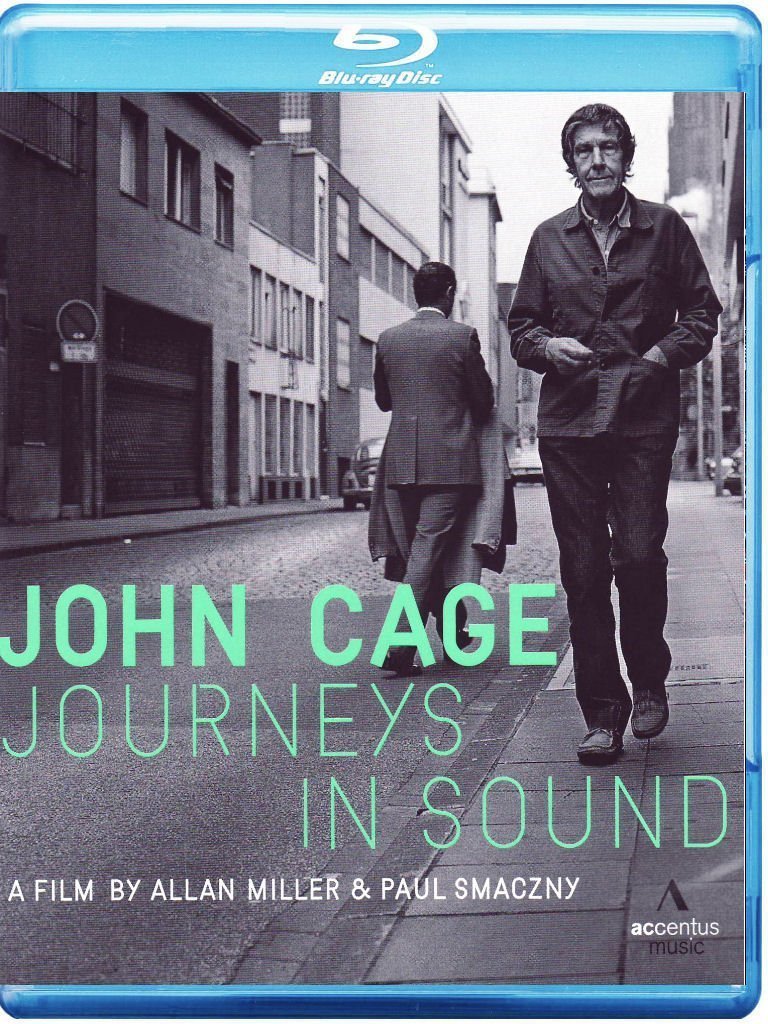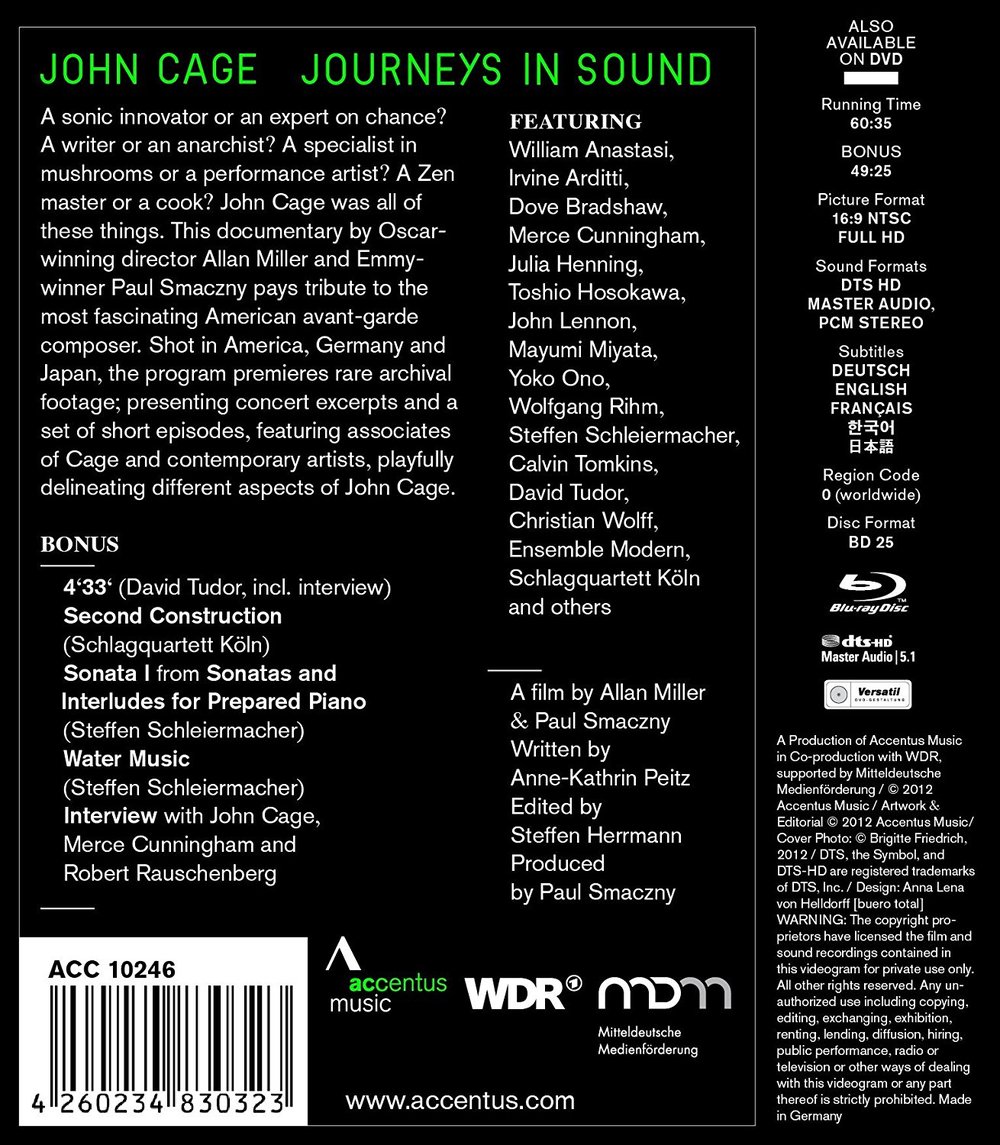

John Cage - Journeys in Sound documentary film. Directed by Allan Miller and Paul Smaczny to mark the composer's centenary. The film has interviews with Wiliam Anastasi, Irvine Arditti, Dove Bradshaw, Brian Brandt, Merce Cunningham, Julia Henning, Toshio Hosokawa, John Lennon, Mayumi Miyata, Yoko Ono, Wolfgang Rihm, Steffen Schleiermacher, Calvin Tomkins, David Tudor, Christian Wolff, the Ensemble Modern, Schlagquartett Köln, and others. Written by Anne-Kathrin Peitz; edited by Steffen Hermann; produced by Paul Smaczny. Released 2012, disc has 5.1 dts-HD Master Audio sound. Grade: B
In 2012, this disc won the "Best Documentary" award at the International Golden Prague Festival. It also won the 2013 International Classical Music Award for best "DVD Documentary." To say that John Cage (September 5, 1912 – August 12, 1992) was a controversial figure in the world of composers is hardly a controversial statement. This documentary, I suspect, won't go far in changing the minds of those who believe that Cage was either a genius or a fraud. What this documentary can give viewers is some understanding of who Cage was and why his unusual composing style resonates with many.
Below is an example of a prepared piano:
The documentary follows the same structure as other fine-arts documentaries we have reviewed. There is no narrator. The film is split roughly into thirds: one-third legacy material of interviews with Cage; one-third modern interviews with those who knew Cage and have been influenced by him; and one-third modern snippets of his work being performed by musicians. The legacy materials are not high-def, but the portions filmed recently are. One of the modern interviewees is Brian Brandt— the man behind Mode Records, which has released the excellent John Cage - Music for Speaking Percussionist.
The film does a good job of explaining the thinking behind Cage's techniques and methodologies, both in his early period of percussion pieces and works with prepared pianos and in his later, more avant-garde work with chance compositions. Cage's work with chance compositions—the creation of pieces with help from random number generators like the I Ching - attempts to pursue pure sound. Cage intended to let sound speak for itself and did not want his personality to shape these chance compositions. The value of this process is up to the listener. (Though most of the interviewees speak highly of Cage and his peculiar compositional style, there is one who is critical. He states that as Cage and his works become more and more radical in their abandonment of traditional musical language, the compositions themselves no longer serve as music, but more as a statement of ideals. No longer is Cage writing music, but manifestos.)
Next below, Steffen Schleiermacher performing Water Music:
Here is the Cage-invented scoring system for Water Music. It was printed so large to allow the audience to see the score before the performance:
In his early days, Cage was a percussionist, and he remained interested in percussion concepts all his life:
Well, is this percussion or wind?
Cage was affable and friendly. There is even a short section detailing his love of mycology—the study and hunt of wild mushrooms:
What is most revealing about Cage, however, is the genuine sense of wonder he exhibits in his inventions. Despite composing such radical works, he never comes off as an iconoclast himself. Instead, he seems to enjoy trying new things. He has no concern with how his works may be perceived in the context of musical history.
The exploration of Cage as a human, not just a composer, is perhaps the most worthwhile aspect of the film. It would be easy to imagine a fictional version of Cage as a revolutionary firebrand, ranting and raging against the old system of musical creation. But the film presents a different sort of man altogether.
OR






